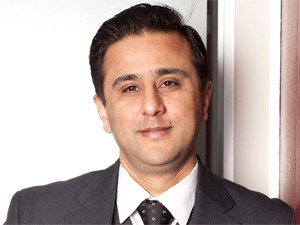
The IT industry is evolving at a much faster rate than the curricula at South African universities, leaving students ill-prepared as they enter the industry.
This is the view of Harish Lala, VP and regional business head for Africa at Zensar Technologies, an Indian IT outsourcing firm. In an interview with ITWeb, Lala noted that industry and government must pool resources to overcome the IT skills dearth facing SA.
"Training should not only be the government's duty," said Lala. "Industry should also help with the training, and that will benefit the country as a whole. A lot of enterprises are doing some sort of skills development, but I believe this needs more momentum."
Sarvesh Batta, Zensar's business development and programme director, said local universities are doing a good job in providing learners with theoretical knowledge; however, he noted that applying that theoretical knowledge to the industry is where many students fall short.
Lala revealed that, since the company entered the South African market in 2001, Zensar has helped to develop the local skills pool in line with SA's national imperatives on skills development. Through its SA Graduate Training and Learnership Programme, which was unveiled in 2009, Zensar recruits local IT university graduates and sends them on three-month learnership courses to India. Some 200 students have graduated from the programme to date, he noted.
According to Lala, students undergo formal training facilitated by experts and then work on a learnership basis in India under the tutorship of Zensar employees. Once back in SA, this training model continues for the duration of the learnership.
He adds that Zensar pays for all of the students' expenses during the course of the learnership and, on completion, students are retained to work for Zensar or are sent directly to local Zensar clients for employment. However, he pointed out that students who find better opportunities elsewhere are not locked in.
"We have realised that, over the past two to three years, about 70% of the graduates have been retained by us as permanent employees of Zensar; roughly 20% go on to join our customers and the remainder find better opportunities elsewhere."
According to Lala, Zensar does not benefit financially by sending the graduates to its clients. "We are not a job placement company; we do not train the students to be transferred to customers to get something out of it. Our main concern is helping our clients build their IT teams and also building relationships with our clients. The clients also help us during the initial phases of the programme where they give opportunities to the graduated to learn."
Lala noted that the programme has the advantages of optimising costs, upskilling local ICT graduates and giving local businesses access to a growing pool of high-end ICT skills in order to achieve their growth objectives.
Zensar has two hubs in Africa - one in SA and another in Kenya. The company has initiated a similar training model in the East African country and hopes the programme will start bearing fruit next year.
In SA, Lala says, the market is mature in terms of technological advancements but local skills shortages is the biggest challenge when it comes to keeping pace with global trends. Thus, the reliance on the global skills pool and delivery models is important.
"We cannot completely ignore the global skills market and delivery models because, without it, we might not be able to meet the needs of the industry and may end up reducing our competitiveness. But at the same time, we can also not ignore the local skills and delivery model development. That is very important from a long-term perspective. The big challenge is to find the balance in developing local capability and leveraging a global model," said Lala.
Share